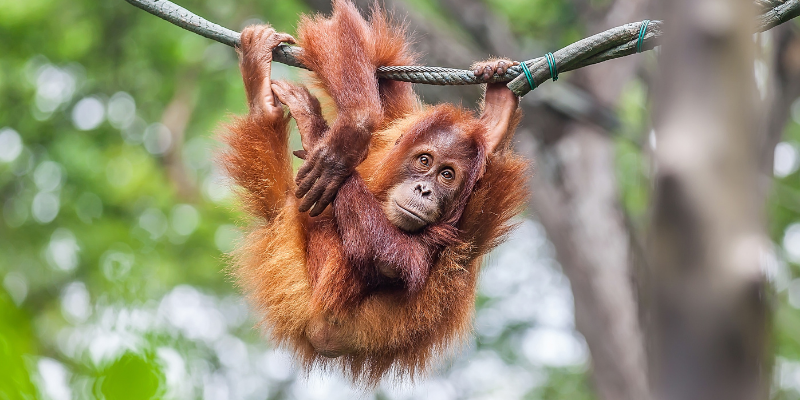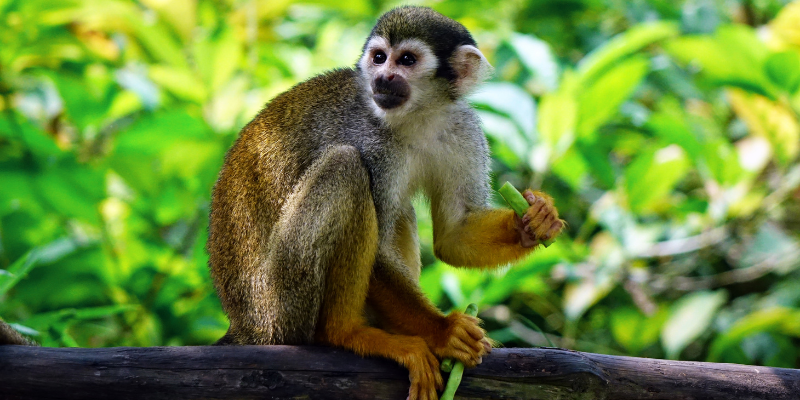
Chimps, apes and other primate species are admired and adored by many. People find them both entertaining and interesting to watch, and what they may not initially realise is their captivation stems from the fact their behaviours are much like ours.
If you find yourself fascinated by these different yet similar animals, you can work with them professionally in your career. A primatologist in simple terms is a scientist who studies primates, but with the diverse range of information we unearth from the study of primates, it’s certainly not a simple choice of careers.
There are many ways you can work as a primatologist depending on what area you intend to focus on. Though, rest assured, each is as fascinating and rewarding as the next.
Benefits of Studying Primates
The study of primates is important for so many reasons, one of the main ones being that we have discovered how vital they are to the survival of other life in their environments.
Primates are often responsible for the dispersal of seeds from plants that many other wild creatures use as a main source of food. Their migration over large distances also helps to regenerate forests so that more life can thrive within them. Primates also play a pivotal part in the food chain as they act as both predator and prey in a food network that would struggle to function without them.
Through primate animal studies, we examine their needs and behaviours so we can see what we need to do to help them thrive in the wild and other environments. We can now see how they need large undisturbed forests to remain safe from harmful human behaviour, as well as human and pet-transmitted diseases and parasites. We also know that deforestation for crops is one of the leading causes of their decline.
The importance of studying non-human primates doesn’t stop there, as humans are a species of primate themselves, we also learn a lot about our ancestors by studying primate intelligence and thought processes.
How Do Primatologists Study Primates?
As there are so many things we can learn from the study of primates, the way in which you study them depends on what you are trying to learn or do.
You may be trying to understand primate behaviour, perform biomedical and reproduction studies, learn about ecology and conservation, or increase their numbers through breeding programmes. As such, primatologists tend to come from biology, medical research, anthropology or zoology backgrounds.
In most cases, how primatologists study primates is within a zoo or other domestic habitat, in a laboratory or out in the field in their natural environment.

Primatology Career Opportunities
There are many different types of roles a primatologist can perform and each will come with its own range of duties. The main ones include:
Primatology Professor
A popular choice is to work in academia as a professor, where your role would be split between teaching and conducting research. You would:
- Teach undergraduate and postgraduate courses
- Supervise laboratory sessions with students
- Conduct your own research studies
- Write and publish your research findings
Primatology Researcher
This can be work performed in a laboratory or out in the primates natural environment, having direct interaction with the animals or studying their genetics. You would:
- Create a plan for your research studies
- Make sure the primates involved in studies are cared for
- Oversee laboratory technicians
- Conduct research out in the field
- Collate data and analyse your findings
- Write up and publish the study results
Primatology Conservationist
This can be through employment by the government, a corporate company or institution, where you would evidence and promote the need for primate existence and how we can help primate species thrive. You would:
- Help run the conservation facility
- Assist in the education of the public
- Be involved in fundraising efforts
- Promote primate conservation through various activities
The Skills You Need to Be a Primatologist
The skills needed to be a successful primatologist again depend on the area you work in and the type of research you perform, but these largely include being able to:
- Communicate effectively – Reading and writing scientifically plus presenting findings are all important aspects of each job
- Have a keen eye for detail – To notice even the slightest change in primate behaviour or appearance
- Have emotional stamina and resilience – So you can spend long periods of time away from family in the wilderness and effectively support sick and injured primates
- Problem solve – Quickly identify threats to wildlife and how to prevent them
- Think critically – To draw sound conclusions from studies and experiments
- Use technology – So you can use geographical tech and data analysis programs

How to Become a Primatologist
It takes degree level study to become a primatologist, but the type of degree you study will depend on the study of primates you want to branch into.
Common undergraduate degrees primatologists have studied include:
- Biology
- Bacteriology
- Ecology
- Pathology
- Psychology
- Veterinary Medicine
- Zoology, among others
As the field is rather competitive, you may want to consider also studying related postgraduate qualifications to stand out against other applicants.
The more education you have that is applicable to primate studies the better, which is why you shouldn’t hold off until university before you make a start. There are plenty of college courses that can not only elevate your knowledge of primates, but also allow you to see if this line of work is for you well before you commit to a degree.
Stonebridge Associated Colleges provide a Primate Studies Level 3 Award (RQF), which covers everything from primate biology, ecology and behaviour, to primate conservation and management. With such a broad spectrum of primate related studies, you will have a much better idea of the area you are most interested in, or passionate about, before choosing your degree. What’s more, as the course is studied online, it can be completed quickly around your other commitments.
Another thing employers will be looking for when hiring future primatologists is the experience they have with primate species. So, if you can, volunteering in zoos, safari parks and other conservation facilities can be incredibly advantageous. As can spending the money to go on overseas conservation excursions, where you get to help on the ground where the animal populations live in the wild.
Study Primates with Stonebridge!
If you fancy yourself as a future primatologist, Stonebridge Associated Colleges can help you make your career ambition a reality.
Our online Primate Studies Level 3 Award (RQF) is the perfect platform to take your interest in primates further, and gain desirable knowledge and skills future employers will value.
Find out more by calling our Course Executives today. They can answer all the questions you have about the course, various primate-related careers and how you can get enrolled.
Call them on 0121 392 8288 or contact them online now.






Leave a Reply